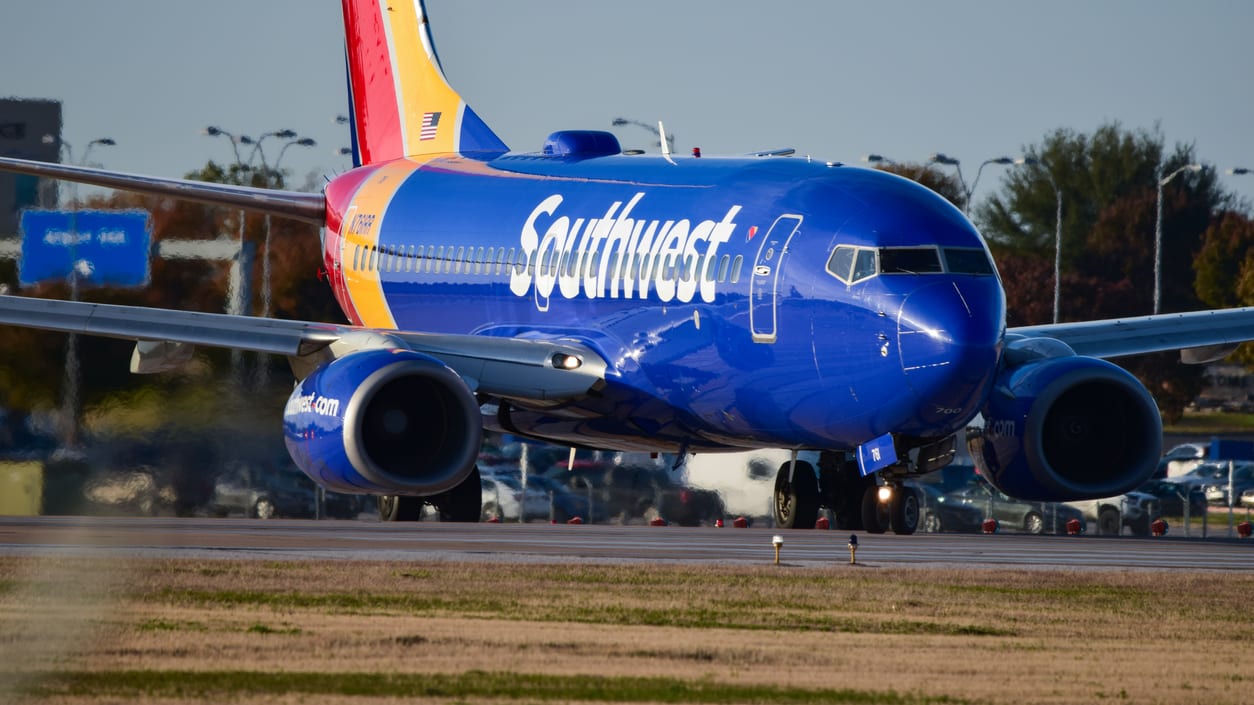Southwest Airlines has scrapped its plan to place unvaccinated workers on unpaid leave while they seek an exemption as a reasonable accommodation to the company's vaccine mandate. We've gathered articles on the news, as well as other airlines' vaccine mandates, from SHRM Online and other media outlets.
Permission to Continue Working While Requests Are Reviewed
Southwest had planned to put unvaccinated employees on unpaid leave as of Dec. 8 if they've applied for but haven't received a religious or medical exemption. Dec. 8 is the deadline for federal contractors to ensure that their employees are vaccinated against COVID-19. Steve Goldberg, Southwest's senior vice president of operations and hospitality, and Julie Weber, the company's vice president and chief people officer, wrote to staff on Oct. 15. They said that if employees' requests for an exemption haven't been approved by Dec. 8, employees could keep working while following mask and distancing guidelines until the requests had been reviewed.
(CNBC)
Southwest Sued
The Southwest Airlines Pilots Association (SWAPA), a union, sued Southwest Airlines over its vaccine mandate before the airline scrapped its plan to place unvaccinated workers on unpaid leave, according to The Dallas Morning News. The union has authorized members to demonstrate against the mandate.
(The Dallas Morning News via Newsweek)
Union Seeks More than Barring Vaccine Mandate
SWAPA claimed that Southwest Airlines made unilateral changes that violate the status quo provision of the Railway Labor Act, which governs relations between airlines and unions, by not maintaining terms of an existing contract during negotiations. SWAPA also is challenging quarantine rules for pilots and an infectious disease control policy that it argues has "significantly altered the working conditions, rules and rates for pay for pilots." Southwest Airlines called the order that SWAPA sought "extraordinary." The airline said approving the relief sought by SWAPA would put Southwest's business, employees and customers at risk because it would force the airline to retract policies that implement basic U.S. Centers for Disease Control and Prevention guidance.
United Wins Battle in One Lawsuit
United Airlines' vaccine mandate, which requires those with religious exemptions to take unpaid leave until protocols are developed to accommodate them, can go into effect, a federal district court in Colorado has ruled. The decision is at odds with a recent opinion in a separate case by a federal district court in Texas that temporarily restrained the airline from implementing the policy. In the Colorado case, the plaintiff, an employee at Denver International Airport, was granted a religious exemption but sought a temporary restraining order because under the policy's terms, she allegedly risked losing her job if her position was filled while she was on leave.
Merits of Case Were Not Reached in Texas Decision
In the Texas decision involving United Airlines' mandate, the judge said, "The court is not currently ruling on the merits of the parties' arguments. Rather, the court seeks simply to avoid the risk of irreparable harm to the parties and to maintain the status quo while the court holds an evidentiary hearing."
(SHRM Online)
Accommodations Policy at American Airlines
An American Airlines official said Oct. 19 that workers who are granted medical or religious exemptions from its vaccine mandate probably will have to wear face masks and undergo regular testing but the airline is still working on details. "American will not be placing any team members on unpaid leave as part of the federal vaccine mandate," said an American Airlines spokesman. Southwest and American are both based in Texas, where Gov. Greg Abbott has ordered businesses not to require vaccinations. Both companies say they will comply with the Biden administration's mandate that contractors require vaccination, which they think has legal priority over state orders.
(NPR)
An organization run by AI is not a futuristic concept. Such technology is already a part of many workplaces and will continue to shape the labor market and HR. Here's how employers and employees can successfully manage generative AI and other AI-powered systems.




